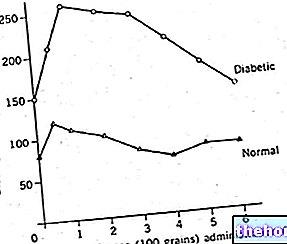Generality
Ammonemia is a medical term for the concentration of ammonia in the blood.
Ammonia is a nitrogenous product that is formed in the organism due to the activity of many tissues, but mostly derives from the metabolism of food proteins and from intestinal bacterial fermentations.
Ammonia is a toxic metabolite for the central nervous system and must be rapidly converted into urea by the liver.

In most cases, increases in ammonia are due to severe hepatic insufficiency or some congenital enzyme defects.




























